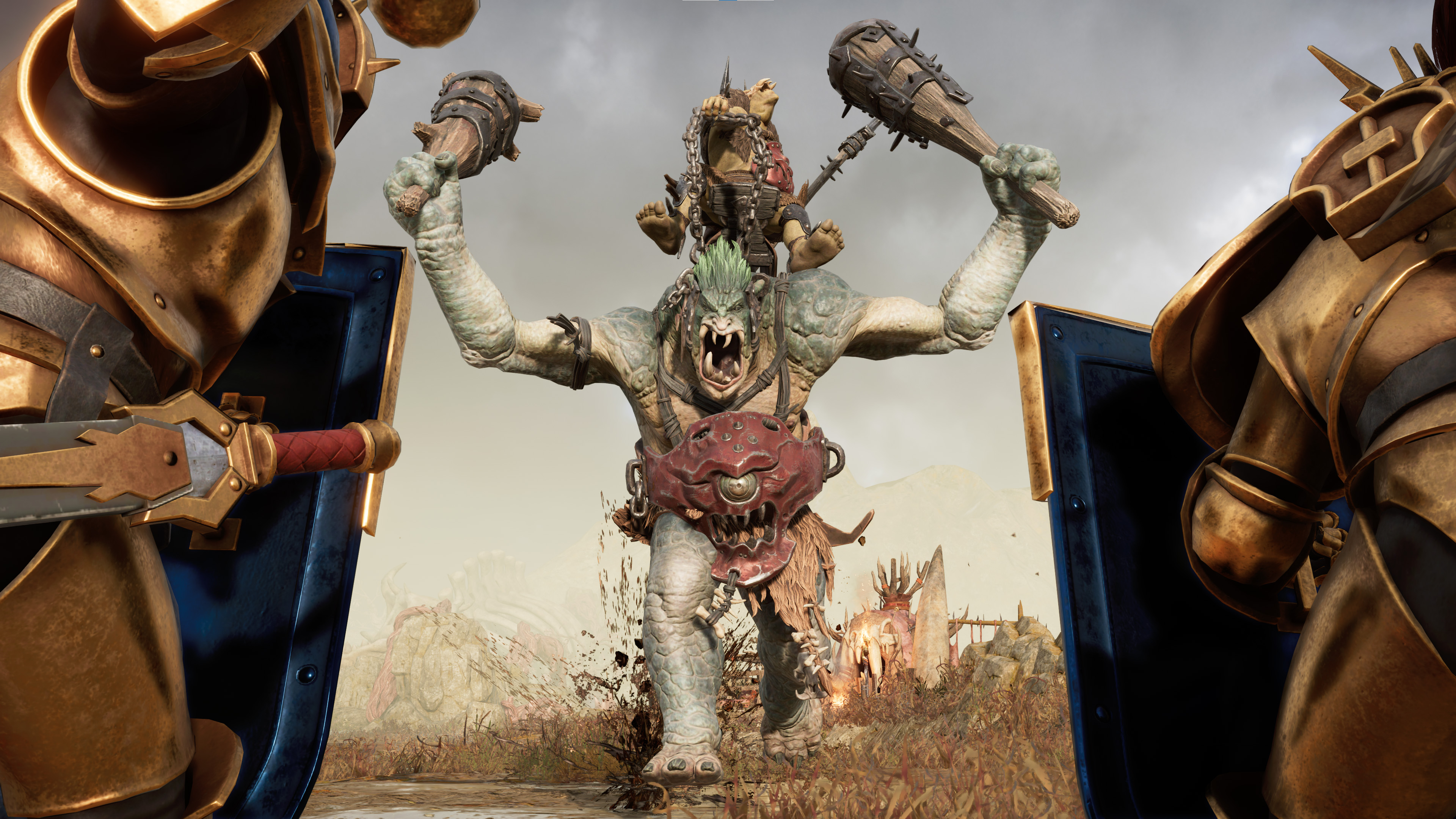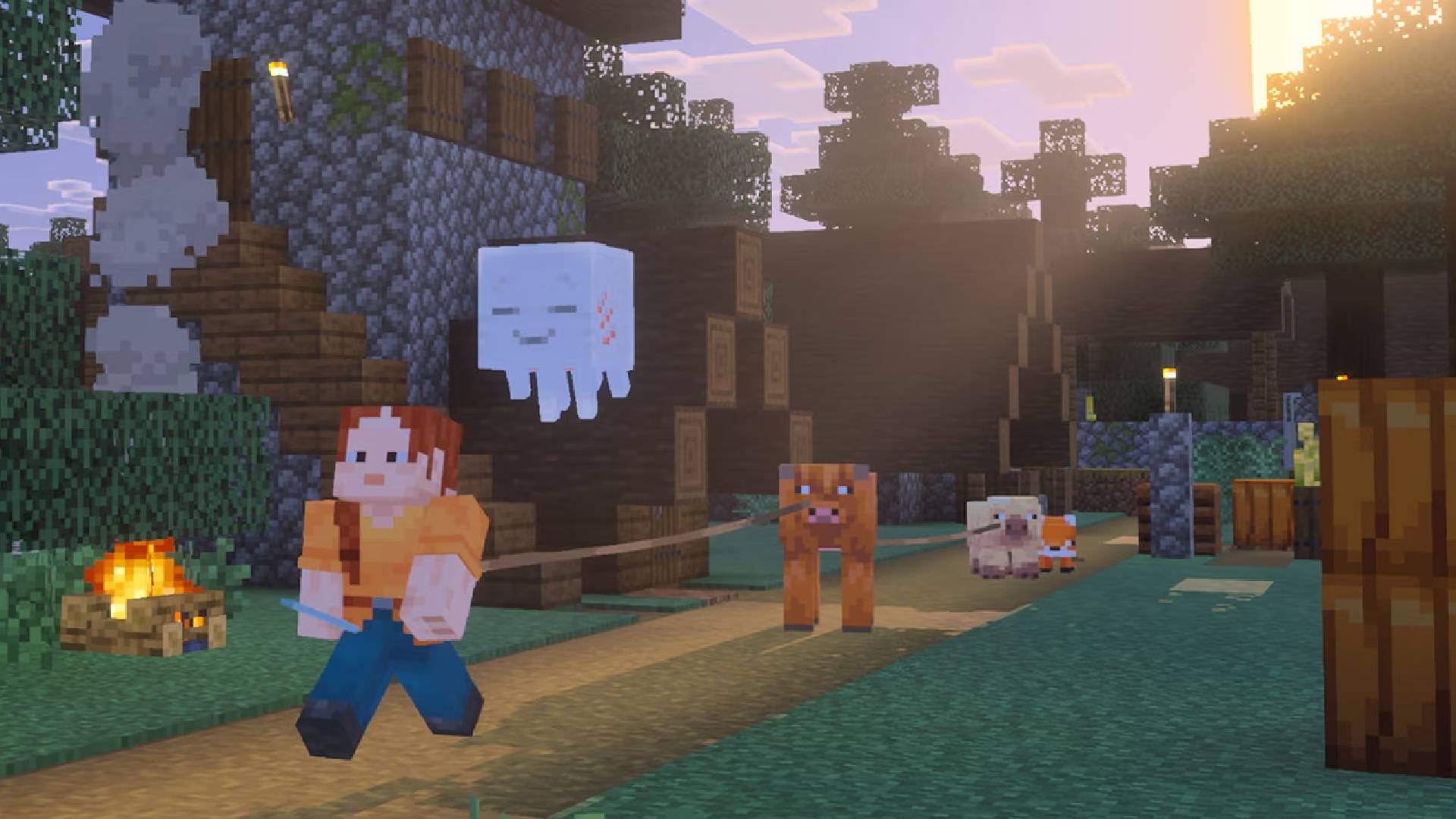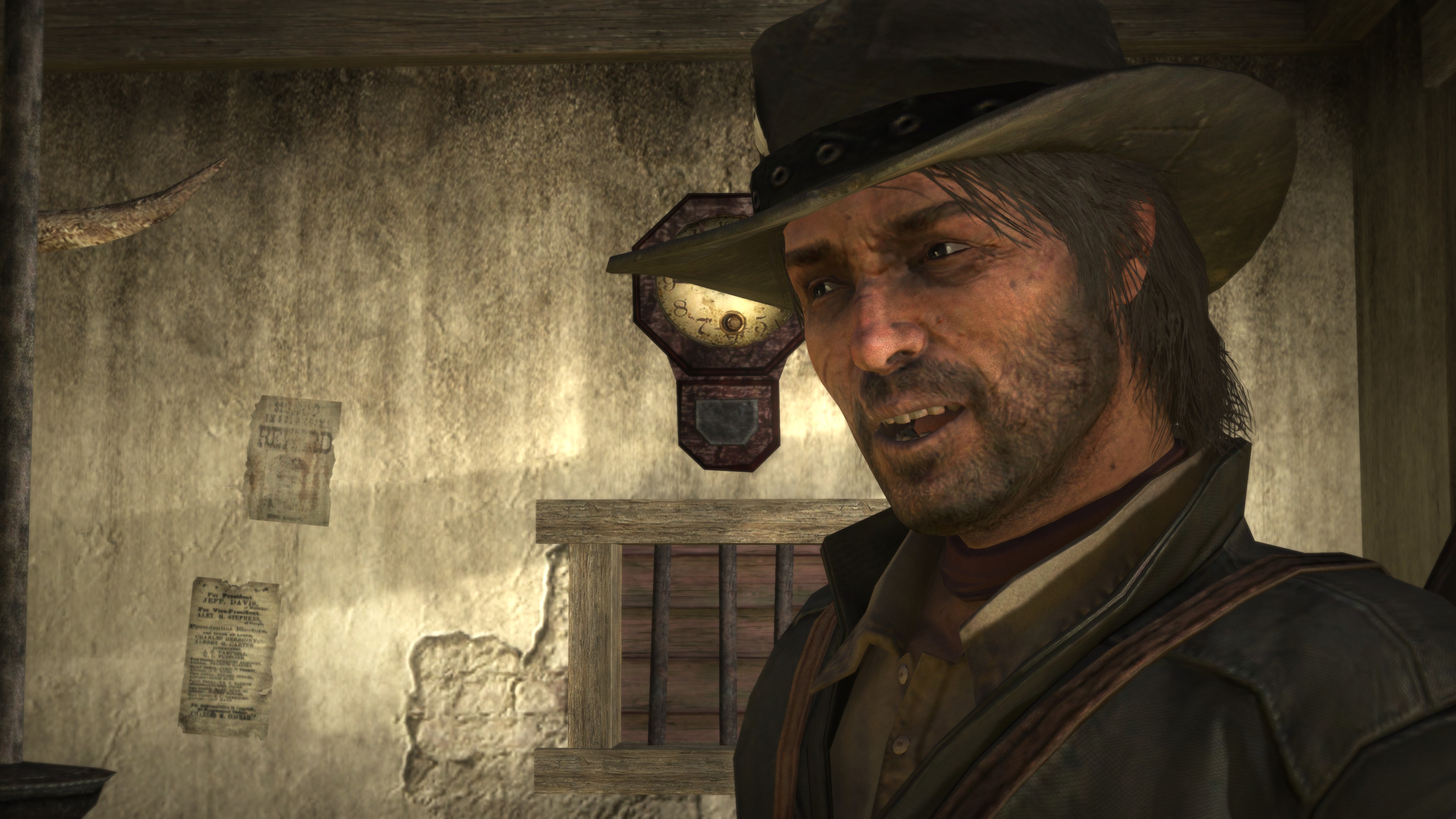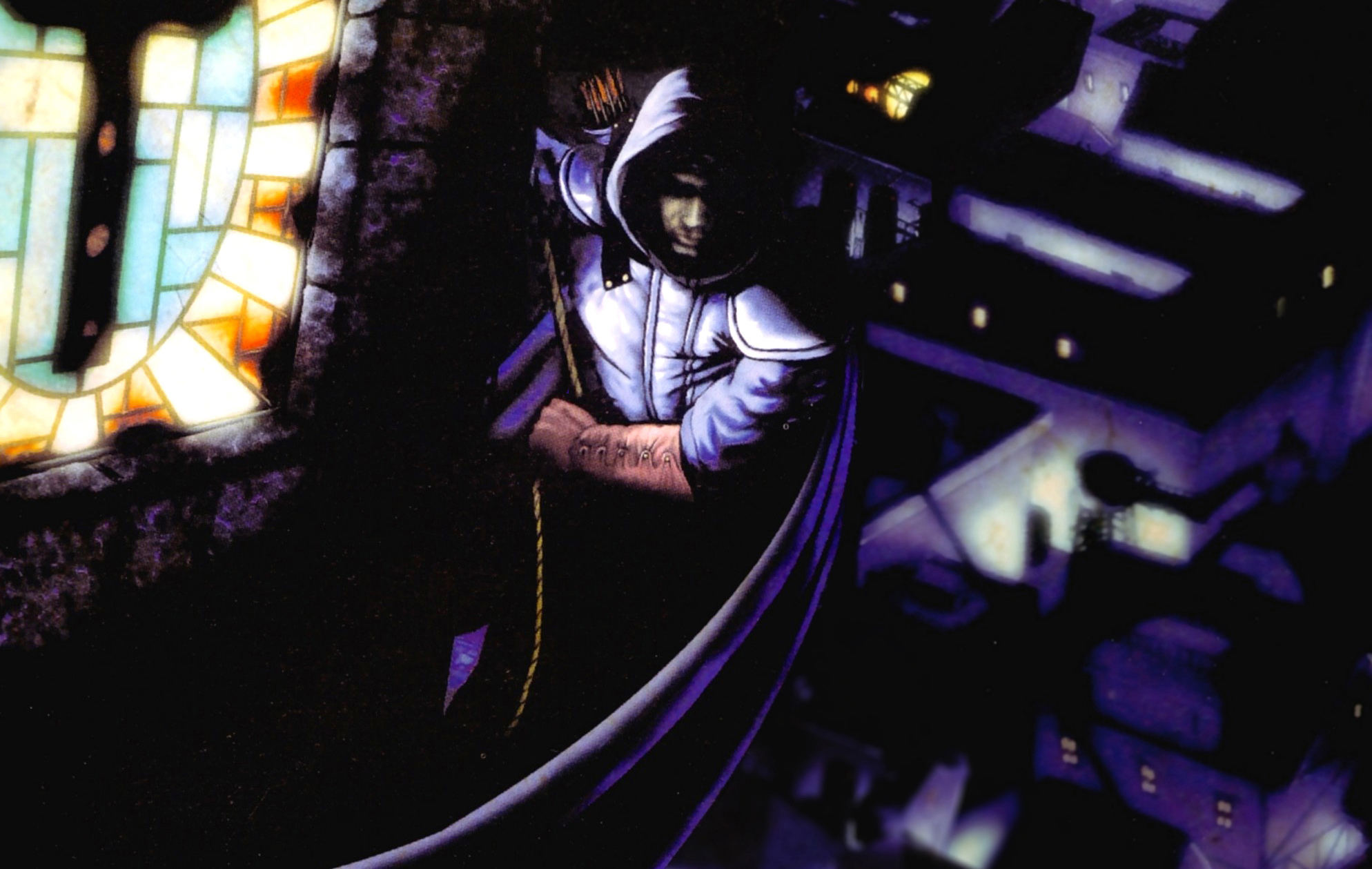
Hands-on with the Warhammer Age of Sigmar RTS.
Pretty soon after my squad of Stormcast Eternals started trudging through an orruk-infested swamp I started to feel at home. The Age of Sigmar setting might not be as familiar to me as the original Warhammer fantasy universe, or Warhammer 40,000, a game that has gobbled up all of my money over the last few years, but Realms of Ruin doesn’t feel like a stranger. It feels more like returning to one of the best Warhammer RTS romps: Dawn of War 2.
Like Relic’s sequel, Frontier Developments has put the focus on its eclectic squads of warriors, encouraging you to get into the thick of things instead of slowly building up a base. There are nodes—Arcane Conduits—that you can capture dotted around the maps that allow you to build structures—Bastions—that generate resources, keep an eye on the area, or damage enemies with ranged attacks. But these encourage expansion rather than turtling. The conflict depicted in Realms of Ruin is not a defensive war.
(Image credit: Frontier Developments)
My first foray into these battle-torn realms put me in charge of a single squad of Vanguard Hunters. This early campaign mission serves as an effective tutorial, revealing that you can do quite a lot with just a small number of troops. We hacked our way through the swamp, cutting down plenty of orruk squads, and then used magic to slip into the shadows to avoid a large, angry troggoth. Another ability cleared the fog of war at a location of my choice, reflecting the squad’s role as scouts.
Run away
We did take some losses, and things got a bit hairy during an ambush, but that’s where the retreat order comes in. It works a lot like Dawn of War 2 and the recent Company of Heroes 3, where ordering a squad to retreat will make them immediately fall back as fast as they can, briefly taking them out of your control but buffing them so that they’re unstoppable while fleeing. The HQ’s active healing ability can then be used to heal and reinforce the squad, getting them ready to jump back into the fight.
The ability to quickly retreat is a godsend, and those seconds where your troops are out of battle are so much easier to stomach than a wipe that forces you to spend precious resources to replace your squad. You need those resources to build Bastions, or you’ll want to save them up to recruit higher-tier squads and units.
(Image credit: Frontier Developments)
Sadly my squad, after surviving plenty of fights, ended up being cut down in a scripted sequence, after which I was given control of a much larger group—the main force I’d been scouting for. This group contained some tougher units with flashy powers, spitting out buffs and heals as long as there were resources to spare. The Stormdrake Guard was a highlight here, able to spew fireballs while flying or a large cone of fire while grounded. The orruks had no chance. Nor did the troggoth that the previous scouts had avoided; this time we made quick work of it, and its pals.
The variety of tactical options and powerful abilities is a feather in Realms of Ruin’s cap, making even lower tier units feel valuable.
The Orruk Kruleboyz—the second of Realms of Ruin’s four planned factions—have their own share of exotic units, like the Marshcrawla Sloggoth. Like the Stormdrake Guard it’s a tier 2 unit, but instead of a dragon it’s a giant that scrambles around on all fours while carrying a platform and net. The net isn’t just a fashion accessory, and it can be deployed to ensnare nearby enemies—something I found incredibly frustrating when facing them in multiplayer. It’s very handy.
The variety of tactical options and powerful abilities is a feather in Realms of Ruin’s cap, making even lower tier units feel valuable. The relatively low number of units you can field—16 once you’ve upgraded your HQ—also means you’ll need to put more thought into your recruitment choices, whether it’s grunts or heroes. This feels pretty true to its tabletop inspiration, as does its attention to aesthetics. Sometimes you’ve just got to zoom in and admire the little warriors, the shiny, extremely detailed crusaders and their fearsome adversaries, all decked out in bone and metal. It makes my paint jobs look downright shit. And the aesthetics are very much enhanced by the fantastic animation, which really shows off the character of each unit.
(Image credit: Frontier Developments)
While the campaign mission took place on a map that pushed my forces down a couple of linear paths, the swampy multiplayer map opened things up to allow for a fight over territory. Along with Arcane Conduits, a few victory points were scattered across it, the capture of which drains the enemy’s score, giving us some objectives to fiercely fight over.
Fast and furious
Brisk seems to be the byword in multiplayer. Once you’ve captured some territory and got a few Arcane Conduits, you’ll have a decent flow of Command that can be spent on abilities and recruitment. Capturing victory points or building specific Bastions will also net you Realmstone, which is essential for recruiting higher tier units and researching upgrades for your troops. Even the low tier upgrades can be game-changers, like the orruk upgrade for the Hobgrot Slittaz, “Mob Up”, which increases their squad size when they kill enemy units. You can pretty swiftly upgrade your HQ and start accessing tier 2 and 3 units, as well as fielding more units at once, so things can ramp up in intensity very quickly.
Between recruitment, upgrades, construction, abilities and healing, your resources can be completely depleted in a blink of an eye, however, so you’ll still need a bit of patience, prioritising what you need in the moment. There were a couple of times where I had to rapidly recruit some new units to make up for some deaths and then found myself without the necessary stockpile to use their abilities. Thankfully, abilities have a relatively cheap cost and if you have even just a wee bit of infrastructure those numbers will tick back up again soon.
(Image credit: Frontier Developments)
The fights themselves also move at a speedy pace, sometimes concluding after just a matter of seconds. Units don’t feel paper-thin, however. Heroes in particular can be incredibly beefy, with chunky healthbars. Frontier Developments have found a solid balance here, not letting fights drag on while also letting you feel empowered.
I love me some base-building and, coward that I am, I do like to turtle. But Dawn of War 2 taught me the joys of being on the offence. Realms of Ruin has reminded me just what a good time that can be. And you’ll be able to take it for a spin yourself very soon. The open beta kicks off on July 7 and concludes on July 10, letting you try out the multiplayer or just get into a good old fashioned comp stomp.



